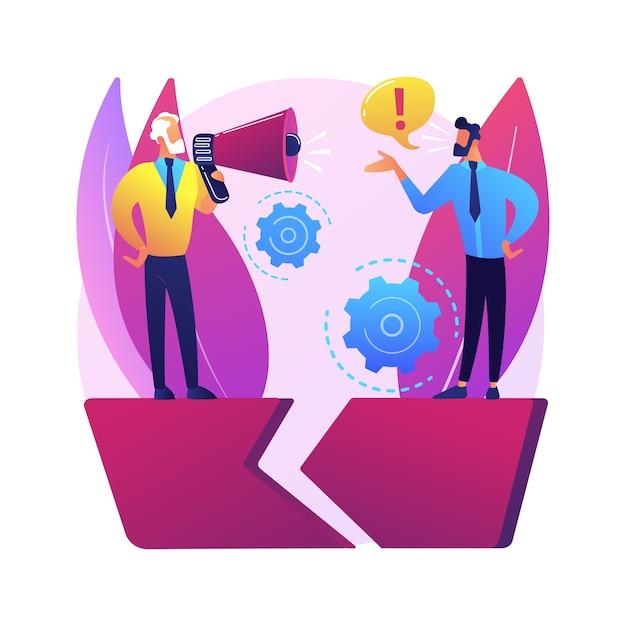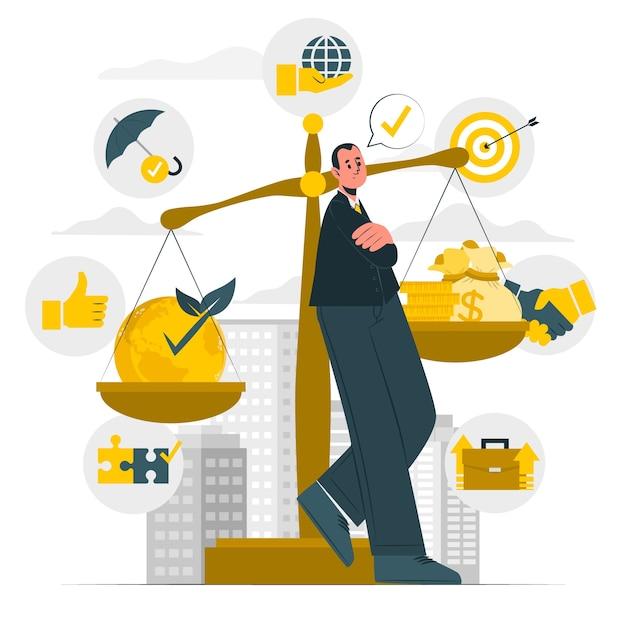Nowadays, in a world that is more interconnected than ever before, effective communication plays a vital role in every aspect of our lives. Whether it’s a conversation with a friend, a business email, or a social media post, how we communicate has a profound impact not only on our relationships but also on society as a whole. In this blog post, we will delve into the importance of ethical communication in today’s world and explore why it is more crucial than ever.
Ethical communication encompasses honesty, respect, clarity, and fairness, ensuring that our words and actions align with moral principles. As communication channels continue to evolve with advancing technologies, it becomes even more imperative to adopt ethical practices that promote trust, understanding, and empathy. So, let’s explore the many aspects of ethical communication and how they enhance the quality of our interactions – both personal and professional.
Let’s dive into the multiple stages of good communication, discover the golden rule that guides effective communication, and examine the principles of ethical communication in the workplace. Together, we will explore the importance of ethical communication, its impact on relationships and society, and how it can shape a more harmonious and connected world.

Why Ethics in Communication is Vital Today
In an era dominated by rapid technological advancements and instantaneous communication, it is more crucial than ever to recognize the significance of ethical conduct in our interactions. Why exactly is it important to be ethical in communication today, you ask? Well, let me enlighten you with a pinch of wit and a dash of wisdom.
Building Trust in the Digital Age
In this digital wild west of cat memes and keyboard warriors, trust is a fragile creature. Being ethical in communication helps build trust amongst individuals and communities. When we communicate honestly, respectfully, and transparently, we lay the foundations of trust that are essential for fostering meaningful connections. Remember, trust is harder to rebuild than your Skyrim character after a swarm of angry dragons.
Preventing Misinformation Mayhem
In a world where misinformation can spread like a California wildfire, ethical communication acts as the water hose that douses the flames of falsehood. By adhering to ethical practices, we minimize the risk of inadvertently propagating misinformation and strive to provide accurate and reliable information to our audience. After all, nobody likes to be misled, except for that one person who thought “Nigerian Prince” was a lucrative investment opportunity.
Nurturing Empathy and Understanding
Ethics in communication goes beyond the mere transmission of words. It encompasses empathy, patience, and a genuine desire to understand others. When we practice ethics in our communication, we create an environment where diverse perspectives can coexist harmoniously. So, instead of engaging in Twitter wars or hurling emojis like grenades, let’s embrace the power of ethical communication and foster understanding among one another.
Encouraging Constructive Dialogue
Let’s face it, the internet can sometimes feel like a boxing ring filled with keyboard pugilists. However, when we prioritize ethical communication, we unlock the potential for constructive dialogue. Through respectful conversation and active listening, we can explore new ideas, challenge our own assumptions, and collaborate to find innovative solutions. So, put on your metaphorical boxing gloves not to fight, but to engage in a spirited intellectual tango.
Promoting Positive Online Interactions
As denizens of the internet, we have the power to shape online interactions. By embracing ethics in communication, we can create a positive and inclusive digital space. Let’s trade the toxicity and hostility for kindness and respect. Remember, it’s never too late to become an online Gandalf, spreading wisdom and compassion like a Gandalf meme.
Respect for Privacy in the Age of Data
In a world where our personal data is as valuable as a health potion in an RPG, ethics in communication demand respect for privacy. Let’s be mindful of the information we share, protect the sanctity of personal data, and ensure that we treat digital privacy as fervently as we guard the recipe for grandma’s secret sauce. Trust me, we don’t want our secrets floating around like rumors of a new Kardashian reality show.
Consequences for Unethical Behavior
Unethical communication can have far-reaching consequences, both personally and professionally. From tarnished reputations to legal ramifications, the pitfalls of unethical behavior are as treacherous as a trapdoor in a Scooby-Doo episode. By adhering to ethical standards, we safeguard our own integrity and protect ourselves from potential fallout. Plus, let’s be real, nobody wants to be remembered as the villain in someone else’s social media exposé.
So, my dear readers, as we navigate the ever-evolving landscape of communication in this data-dependent, meme-centric era, let’s remember the importance of ethics. Let’s be the knights of communicative integrity, the superheroes of trustworthy dialogue, and the warriors of an inclusive digital realm. Together, we can wield the mighty sword of ethical communication and triumph over the forces of chaos and confusion.
Embrace Ethics, Flourish in Communication

FAQ: Why is it important to be ethical in communication today?
Disclaimer: The following section provides answers to frequently asked questions related to the importance of ethical communication. We’ve got the answers you need, with a side of American humor! So, without further ado, let’s dive right in!
How important is it to be ethical in communication today
Ethical communication plays a vital role in our society, especially in today’s interconnected world. People have become more aware of the impact their words and actions can have on others. Being ethical in communication means being honest, respectful, and responsible, both in person and online. By practicing ethical communication, we create a more positive and harmonious environment where trust and understanding thrive.
How many stages are there in good communication
Communication is a dance, and like any good dance, it involves a sequence of steps. To simplify this process, we can break it down into four stages:
-
Encoding: This is the stage where an idea or message is formulated and translated into words or nonverbal cues. Think of it as putting your thoughts into words or gestures.
-
Transmitting: Once the message is ready, it needs to be sent across to the intended recipient. This can be done through various channels: face-to-face conversations, phone calls, emails, or even carrier pigeons if you’re feeling adventurous!
-
Receiving: The recipient then receives the message and has to comprehend and interpret it. This step is crucial, as misinterpretations can lead to confusion or misunderstandings.
-
Decoding: Finally, the receiver decodes the message, understanding its meaning and possibly formulating a response. This completes the dance of communication!
What is the “golden rule” of communication
Ah, the golden rule of communication! Just like the golden rule of life, it’s quite straightforward: “Treat others how you would like to be treated.” In the realm of communication, this means being considerate, empathetic, and respectful to those we engage with. After all, we wouldn’t appreciate being yelled at, ignored, or deceived, so why subject others to such treatment? Let kindness and decency guide your words, and watch the magic happen!
What are the principles of effective communication in the workplace
In the vast and often chaotic realm of the workplace, effective communication is key to ensure smooth sailing and avoid misunderstandings. Here are some fundamental principles of effective communication that can help you navigate this corporate labyrinth:
1. Be open and transparent
Honesty is the best policy, as they say. In the workplace, being open and transparent fosters trust and encourages healthy collaboration. Avoid keeping information hidden or misleading your colleagues, and remember that honesty is always the best route, even if it means admitting mistakes.
2. Use active listening
Listening is an art, my friend. Give your undivided attention to the person speaking, and avoid interrupting or assuming what they are trying to convey. By practicing active listening, you not only make the other person feel valued, but you can also gain deeper insights and avoid misunderstandings.
3. Be concise and clear
In a world filled with information overload, brevity is a superpower. Nobody wants to read lengthy emails or sit through never-ending meetings. Be clear and concise in your messages, ensuring that your point gets across without confusing or boring your colleagues. Get to the point, but don’t sacrifice necessary details!
4. Respect diversity
The workplace is a melting pot of diverse cultures, opinions, and backgrounds. Embrace this diversity and ensure that your communication considers and respects all perspectives. Avoid bias and be mindful of language that may offend or exclude others. By fostering an inclusive environment, you enable collaboration and creative solutions to flourish.
So there you have it! We’ve answered some burning questions regarding the importance of ethical communication. Remember, communication isn’t just about the words we use; it’s about how we make others feel. So, let’s make the world a better place—one ethical conversation at a time!
Disclaimer: The following content is generated by AI and designed to provide helpful information on the topic.
